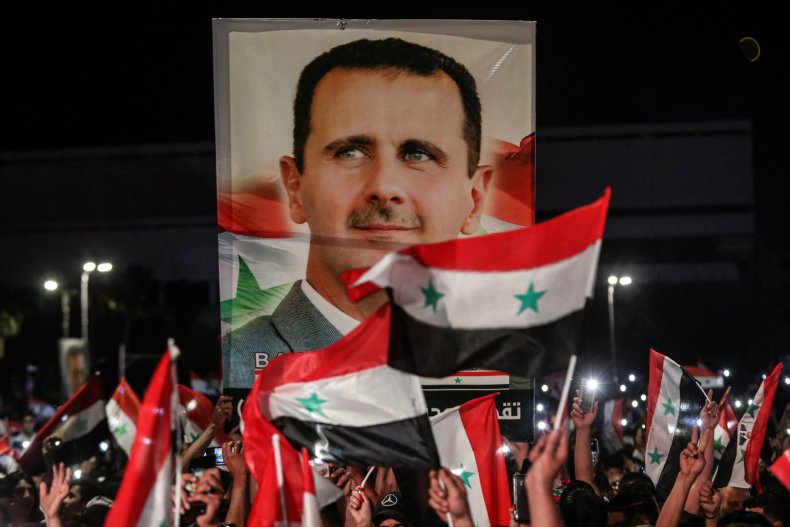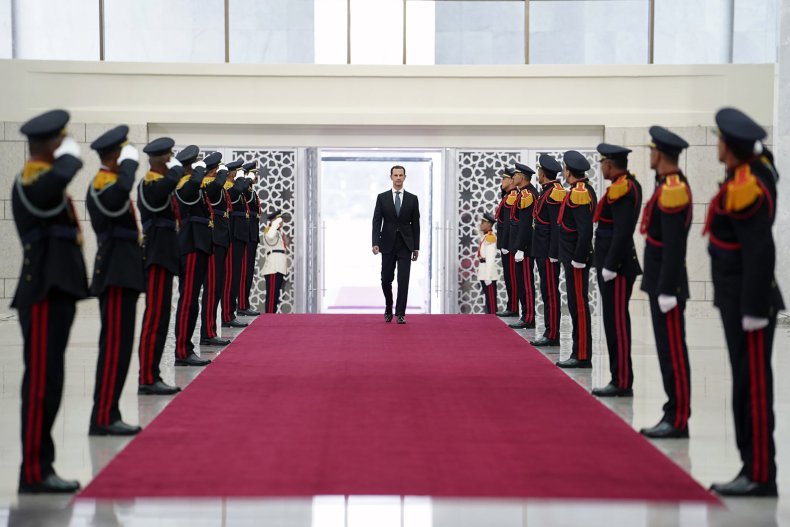Biden Administration's First Syrian Sanctions Target Prisons, Two Armed Opposition Groups
The Biden administration is targeting prisons and armed opposition groups in its first sanctions against Syria.
The U.S. Treasury announced Wednesday that the sanctions are part of the White House's policy to maintain pressure on Syrian President Bashar al-Assad and hold armed groups accountable for human rights violations.
"The United States is taking action to promote accountability for entities and individuals that have perpetuated the suffering of the Syrian people," Secretary of State Anthony Blinken said. "Today's action makes clear that the United States will not forget the victims of human rights abuses in Syria and will use appropriate tools to target and single out those responsible, regardless of the perpetrator."
The sanctions apply to eight Syrian prisons, many of which are linked to powerful military intelligence agencies and generals. This includes the notorious Saydnaya military prison, north of Damascus.

For more reporting from the Associated Press, see below:
The sanctions follow U.S. enactment last summer of legislation called the Caesar Syria Civilian Protection Act. The act is named after a Syrian military photographer who leaked thousands of photographs of thousands of victims of torture in prisons run by the Assad government.
The U.S. Treasury said many of the prisons designated Wednesday were specifically highlighted in images provided by Caesar. It is not clear how a Syrian prison may be impacted by U.S. sanctions.
In a groundbreaking report in 2017, Amnesty International said Syrian authorities killed at least 13,000 people in the first five years of the country's civil war in mass hangings at Saydnaya. The rights group referred to the killings as a "calculated campaign of extrajudicial execution."
Rights groups estimate that 130,000 Syrians are still missing or detained. The U.S. and many European governments accuse Assad's government of most of the war's atrocities.
The previous administration had focused most of its sanctions in Syria on businesses, financial institutions and associates of Assad and his family.
Among those sanctioned by the U.S. Treasury is an opposition armed group, Ahrar al-Sharqiya, whose fighters are mostly from eastern Syria. Two of the group's leaders were also sanctioned.
The group has been incriminated in the killing of a Syrian Kurdish politician, Hevrin Khalaf, in 2019. It is believed to have incorporated many Islamic State group militants into its ranks. It has also participated in Turkey-backed operations against Syrian Kurdish groups in northwestern Syria.
The U.S. Treasury said Ahrar al-Sharqiya has committed numerous crimes against civilians, particularly Syrian Kurds. They include unlawful killings, abductions, torture and seizures of private property, compounding the suffering of a population that has repeatedly endured mass displacement.
The other armed group is affiliated with the Syrian military, Saraya al-Areen. The group has been fighting alongside government troops in northwestern Idlib province, where the last opposition enclave is located. The U.S. Treasury said the group was targeted for violating and obstructing a cease-fire in place since 2020.
"Today's designations promote accountability for abuses committed against the Syrian people and deny rogue actors access to the international financial system," Director of the Office of Foreign Assets Control Andrea Gacki said.
Syria's government has criticized the U.S. sanctions, blaming them for a worsening economic crisis and calling them "crimes against humanity."
In power since 2000, Assad began a fourth term in office earlier this month with the country still devastated by the 10-year war and sliding deeper into a worsening economic crisis.


